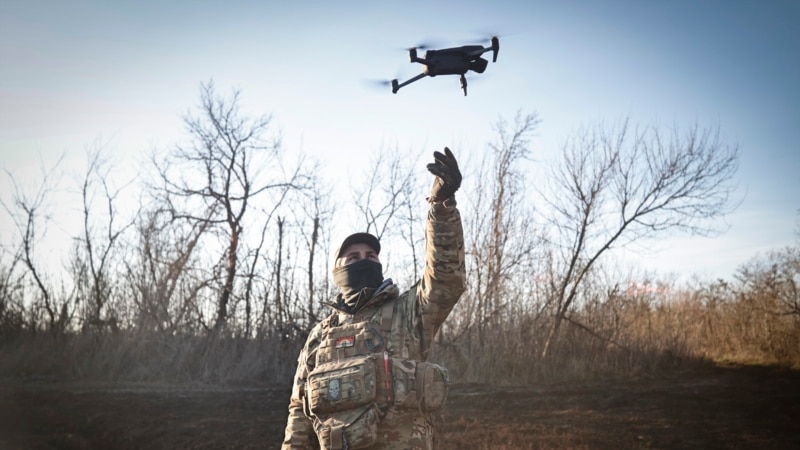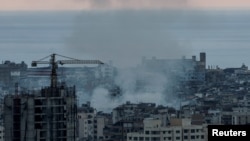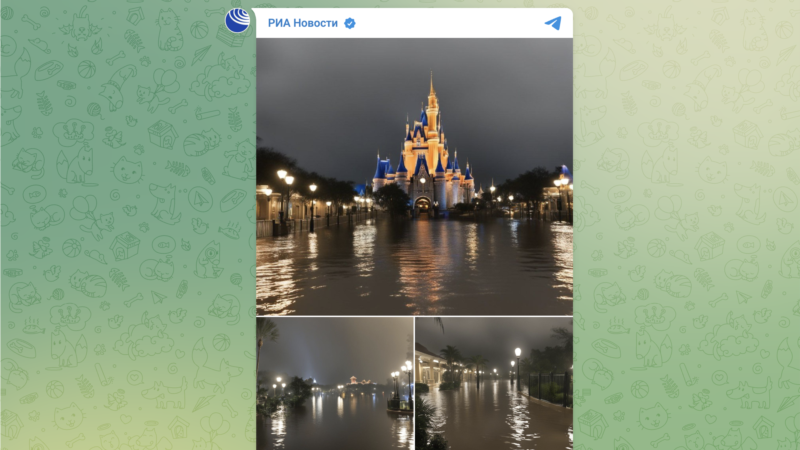For full coverage of the crisis in Ukraine, visit Flashpoint Ukraine.
The latest developments in Russia’s war on Ukraine. All times EST.
3:30 a.m.: Russia’s No. 2 bank VTB was hit by the largest cyberattack in its history, it said on Tuesday, warning of temporary difficulties in accessing its mobile app and website, but assuring customers that their data remained safe, Reuters reported.
State-owned VTB said it was repelling the distributed denial of service, or DDoS attack, in which hackers attempt to flood a network with unusually high volumes of data traffic in order to paralyze it.
“The bank’s technological infrastructure is under an unprecedented cyberattack from abroad,” VTB said in a statement. “The largest not only this year, but in the whole time the bank has operated.”
Russian government entities and state-owned companies have been targeted over events in Ukraine, with the websites of the Kremlin, flagship carrier Aeroflot and major lender Sberbank among those to have seen outages or temporary access issues.
Hackers also delayed the start of President Vladimir Putin’s speech at Russia’s flagship economic forum earlier this year.
Pro-Russian hackers, meanwhile, have claimed responsibility or been blamed for attacks on websites and infrastructure in the likes of Lithuania, Norway and the United States this year.
VTB said the majority of attacks had come from abroad, but that it was particularly concerned by traffic from Russian IP addresses. It said it would hand over all identified Russian IP addresses to law enforcement.
3:16 a.m.: The Latvian broadcasting regulator’s chairman said Tuesday that the regulator canceled the license of a Russian independent television station TV Rain, Reuters reported.
“In connection with the threat to the national security and public order, (the regulator) has made a decision this morning to annul the broadcast license of TV Rain,” Ivars Abolins said on Twitter, adding the broadcasts will cease on Thursday.
3 a.m.: Oil rebounded on Tuesday after plunging by more than 3% in the previous session, as the implementation of sanctions on Russian seaborne crude oil eased concerns about oversupply while the relaxing of China’s COVID curbs bolstered the demand outlook, Reuters reported.
The Group of Seven set a top price of $60 a barrel on Russian crude, aiming to limit Moscow’s ability to finance its war in Ukraine, but Russia has said it will not abide by the measure even if it has to cut production.
The price cap, to be enforced by the G-7 nations, the European Union and Australia, comes on top of the EU’s embargo on imports of Russian crude by sea and similar pledges by the United States, Canada, Japan and Britain.
While the market weighs the impact of sanctions on Russian supply, it was also watching a traffic jam of oil tankers off the coast of Turkey on Monday, with Ankara insisting on new proof of insurance for all vessels.
“The threat of losing protection and indemnity (P&I) insurance will limit Russia’s access to the tanker market, reducing crude exports to 2.4 million barrels per day (bpd) — 500,000 bpd lower than levels seen before Russia invaded Ukraine in late February this year,” analysts from Rystad Energy who spoke to Reuters said in a note.
2:22 a.m.: A drone attack on an airfield in Russia’s Kursk region set fire to an oil storage tank, Reuters reported Tuesday citing a governor, a day after Russia accused Ukraine of audacious drone attacks on two military airfields deep inside Russian territory.
Roman Starovoyt, the governor of the Kursk region bordering Ukraine, said on the Telegram messaging app there were no casualties from the attack and the fire was “localized.” Reuters reported that the news agency was not able to immediately verify the reports.
Russia’s defense ministry said earlier the Ukrainian drones attacked two air bases at Ryazan and Saratov in south-central Russia on Monday, killing three servicemen and wounding four, and damaging two aircraft.
Ukraine did not directly claim responsibility for any of the attacks. If it was behind them, Monday’s strikes would be the deepest inside Russia since Moscow invaded Ukraine on February 24.
The New York Times, citing a senior Ukrainian official, said the drones involved in Monday’s attacks were launched from Ukrainian territory, and at least one of the strikes was made with the help of special forces close to the base. Israeli satellite imaging company ImageSat International shared images it said showed burn marks and objects near a Tu-22M aircraft at the Dyagilevo airbase.
2:15 a.m.: Russian state-owned multinational energy company Gazprom said it plans to ship 42.4 million cubic meters of natural gas to Europe via Ukraine on Tuesday, according to Reuters.
2:05 a.m.:
1:43 a.m.: From The Associated Press’ Year in Photos:
1:13 a.m.: Canada on Monday said it will contribute $11.04 million (C$15 million) for equipment needed by Ukraine for humanitarian clearing of landmines, Reuters reported.
The assistance will help fund detection and clearance of landmines, unexploded explosive ordnance and other explosive remnants of war.
Canada is providing bomb suits to help protect Ukrainian de-miners, along with funding for advanced remote-control de-mining systems to clear large areas like farmland, the Canadian government said in a statement.
12:40 a.m.:
12:05 a.m.: Three parcels containing animal eyes and addressed to Ukraine’s embassy in Madrid and consulates in Barcelona and Malaga were intercepted at offices of the national postal company, Spanish police said Monday, according to The Associated Press.
Seven European countries, including Spain, reported Friday that similar packages had arrived at their Ukrainian embassies or consulates last week. Ukraine’s ambassador to the Vatican also reported that the entrance to his Rome residence was vandalized Thursday afternoon with what he believed to be animal feces.
A security guard at the Ukrainian Embassy in Spain’s capital was injured November 30 while opening a parcel addressed to the ambassador. Four more letters containing explosive devices were intercepted during the next 24 hours, including one sent to the U.S. Embassy in Madrid.
A similar package addressed to Spanish Prime Minister Pedro Sanchez was discovered a week earlier.
Spain’s National Court is investigating the explosive parcels as an act of terrorism. According to the initial investigation, the packages were mailed from within Spain.
Some information in this report came from The Associated Press and Reuters.








